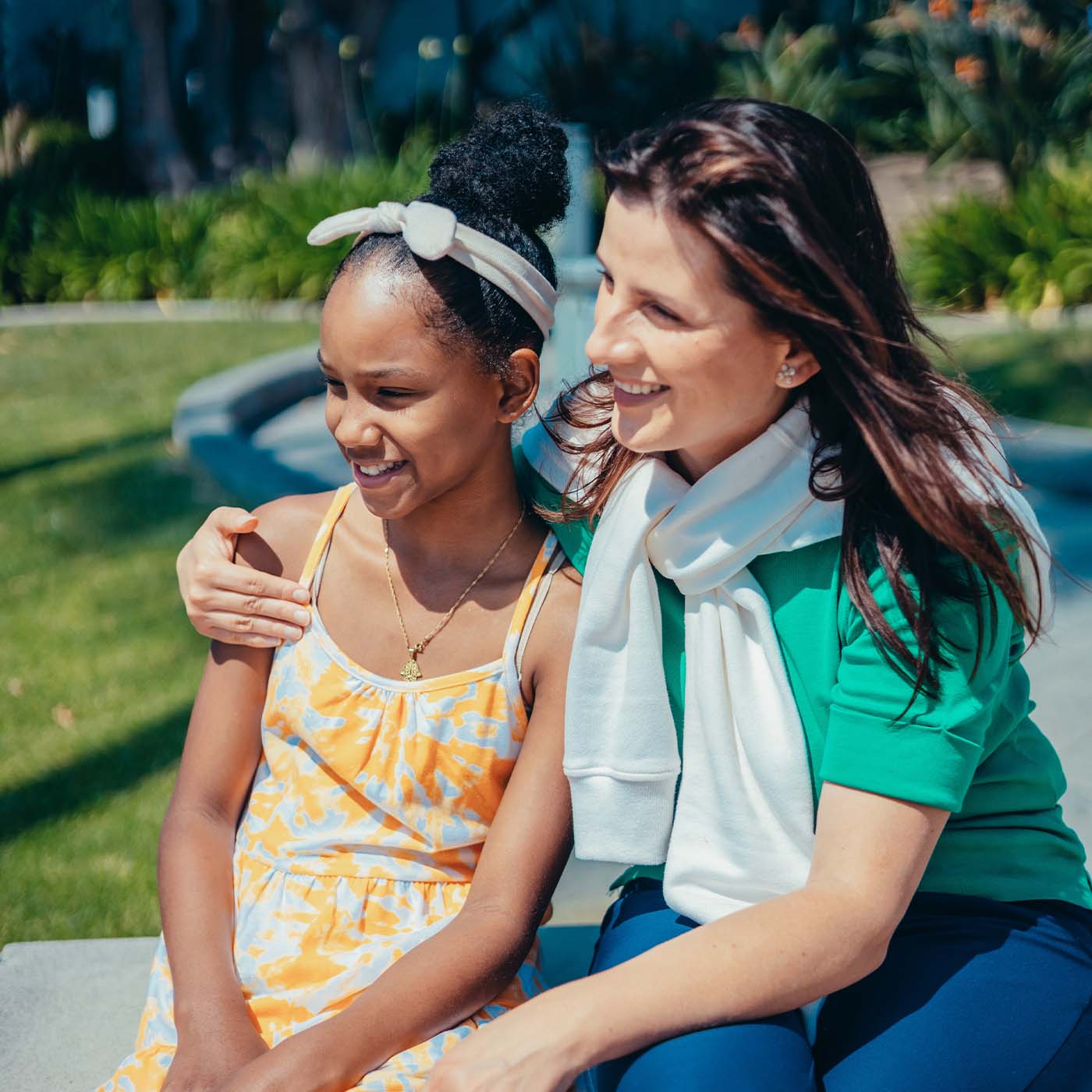Foster Care
Opening our hearts and homes
As a foster parent, you could be the “one caring adult” who makes a difference for a child.”

Needing a Loving Home
This is the reality for kids in foster care. Many times, their birth families cannot provide what they need at this moment in time due to no fault of the children.
Between 13,000 to 15,000 children are in foster care in Pennsylvania. All of these children desire and deserve to have a safe place to call home and family to depend on. Each year, approximately 1,100 children age out of the foster care system without a stable home environment to call their own. Many will not graduate from high school.
There has been a lot of research and evidence that indicates a relationship with at least one caring adult can promote a child or adolescent’s overall well-being. As a foster parent, you could be the “one caring adult” who makes a difference for the child.
Will You Help?
Foster families help build strong futures and communities. They serve as advocates for the children in their care, connecting them with resources and services. They play a crucial role in bridging communication between birth families, schools, and social services, ensuring that the child’s needs are met comprehensively.
By supporting a child’s emotional, physical and educational growth, foster families are helping to guide these children towards a better future where they have the essential skills they need to integrate into the community. This creates healthy foundations that help to build stronger communities.


Working Together
Our team will be here to support you from the time you inquire about becoming a foster parent through training, onboarding, and placement. While a child is placed with you, we visit your home monthly to check in and offer support. We also have a coordinator available after business hours, so you have 24/7 support available whenever a need arises.
Building a community support system is important to a successful experience as a foster parent. Connecting with other foster families and children through foster family support groups and other community resources will help you be prepared and sustain for the long-term as a foster parent. Our team will connect you with these resources throughout the time you work with our organization.
Healing Love
You will get attached. That’s okay. We want you to! Our kids need to experience healthy attachments in order to heal.
Building relationships and working closely with your child’s birth family will allow them to see that family has no limits. It will give you the opportunity for forever friendships and an extension of your family, even after reunification.
No matter if you invite kids into your home for short or long-term, you will make a difference in their lives for a lifetime!
To learn more, contact our team today!

Got Questions?
We are more than happy to connect and talk with you about becoming a foster parent. Please reach out to our team! You may also take a look at our list of the most frequently asked questions below.

Frequently Asked Questions
Am I qualified to be a foster parent?
We qualify our foster parents through an interview and home study process. Once approved, you will receive support from other team members and ongoing training to help you with your new foster parenting role.
Some basic qualifications include:
- Be at least 21 years of age.
- Obtain current child abuse, criminal history and FBI clearances.
- Supply three non-family member references.
- Be in good physical and mental health.
- Have a valid driver’s license and a fully-insured car.
- Have a home that is insured and meets safety standards.
- Earn an income sufficient enough to meet the current financial needs of the family.
- Be willing to obtain the required training.
Will I have any special training to help me be a foster parent?
Access Foster Care & Adoption offers trainings which are convenient and flexible to fit in with most any family’s busy schedule. Foster parents are required to take 24 hours of pre-service training their first year and 6 hours of ongoing annual training.
How long will a child stay in our home?
The length of stay for a child usually depends on the specifics of each child’s situation. Foster care is temporary in nature with a primary goal of reunification with the natural family or a similar, permanent solution.
Can I decline taking in a child that I feel is not a good match?
Yes. A representative from the program will call and speak with you about a child. You always have the option of accepting or declining to have a child in your home. We respect your judgment in doing what is best for your family.
If a crisis situation arises, what do I do?
Access Foster Care & Adoption provides emergency on-call seven days a week, 24-hours a day. You will be provided with intensive support to stabilize a crisis.
Can I really make a difference?
There has been a lot of research and evidence that indicates a relationship with at least one caring adult can promote a child or adolescent’s overall well-being. This may lead to better educational outcomes, being more engaged with society (including volunteerism), improved physical and mental health, higher levels of engagement in activities, and an increased ability to handle challenges. As a foster parent, you could be that “one caring adult” who makes a difference for the child and, by extension, for the future community that they will be a part of.
Why do children come into foster care?
The most common reason children enter foster care in the US is neglect. This has consistently been the most common type of maltreatment experienced by a child. https://www.aecf.org/blog/child-welfare-and-foster-care-statistics
What happens when a child is not able to be reunified with their family of origin or adopted?
Research has shown that youth who “age out” of the foster care system have a higher risk of homelessness, mental health challenges such as depression, substance abuse and anxiety disorders, criminal involvement, being less educated and struggling with employment and financial security. https://www.psrfa.org/being-a-foster-parent/the-facts/
Access Foster Care & Adoption strives to minimize this impact by attempting to secure a permanent family for any child who cannot be reunified with their family of origin. When that’s not possible, there are alternatives such as foster parents becoming legal guardians or assistance to enter a supervised independent living program (SIL) and/or connecting them with a transitional program such as TIP (Transition to Independence Process).
What support will I get from Access Services while I am a foster parent?
Our team will be here to support you from the time you inquire about becoming a foster parent through training, onboarding, and placement. While a child is placed with you, we visit your home monthly to check in and offer support. We also have a coordinator available after business hours, so you have 24/7 support available whenever a need arises.
What if I need a break while a child is living with me?
Foster parents can request respite, a time when the foster child would stay with another family so that you can tend to personal needs or take time to recharge.
How long will a child live with me?
While the length of time a child is in foster care varies greatly, on average, a child can spend approximately 12-20 months in care. Ten percent of foster children spend more than 5 years in foster care. https://americanspcc.org/get-the-facts-foster-care-adoption/
What are the goals of foster care?
Foster care is intended to provide a safe, nurturing, temporary environment until the child’s family can care for them again. The primary goal is to stabilize the family so that the child can return home to their family of origin. If that is not possible, another permanent option will be sought which may include living with a relative or being adopted.
Do I get to choose the age range of the child who will be placed with me?
As part of the onboarding process, you will be asked about the age range that would fit best into your home, family, and lifestyle. When a placement becomes available, you will be involved in the decision to have that child placed with you. It is not very common that babies come into foster care. The more open you are to various age ranges, sibling groups, teenagers, or a child with special needs, the sooner you will likely get a foster placement in your home.
Is there a reimbursement for foster care placements?
Foster parents receive a payment for each foster child in their home. The payment should be used to cover the child’s expenses such as food, clothing, activities, etc.

